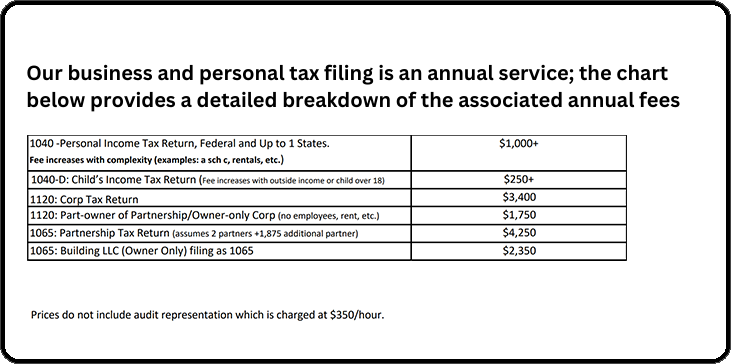Tune in to our podcast series: The Dental Board Room
Listen Now

Buying a dental practice is one of the biggest decisions in a dentist’s career. Beyond the excitement of ownership, it’s also a transaction filled with risks that can quietly drain profitability if the details aren’t examined closely. What looks promising on paper doesn’t always translate into long-term success once you step into the operator’s chair.
One common trap is inflated numbers from services that aren’t sustainable, like cosmetic add-ons such as Botox. If you’re not trained, interested, or prepared to continue those services, the “profitability” you’re buying may vanish within months. To avoid that outcome, here are the key principles every dentist should know before signing on the dotted line.
Shiny revenue can hide cracks. Just because a practice reports strong collections doesn’t mean that income is stable or repeatable.
If you only look at the top line, you risk buying a mirage.
Ever hear the phrase, “If it looks too good to be true, it probably is”? Dentistry is no exception. Some practices show stellar profits but only because of unusual or unsustainable factors.
A practice with great numbers but weak fundamentals is like Botox: it looks good in the moment, but fades fast.
Here’s where buyers often get burned: the practice’s clinical mix doesn’t match their own skills or philosophy. If the seller is known for full-mouth cosmetic cases but you’re a restorative bread-and-butter dentist, patients will notice the change, and some won’t stay.
Without alignment, patients may quietly walk out the door.
Numbers don’t always tell the full story. Hidden obligations can turn an exciting purchase into a financial trap.
If you don’t dig deep, you’ll inherit problems you didn’t sign up for.
A practice is nothing without loyal patients. Before signing, make sure the charts represent active, engaged relationships, not dusty files gathering cobwebs.
A “large patient base” means nothing if half of them are ghosts.
Financial due diligence is about more than glancing at P&L statements. You need to break down where the money is coming from and where it’s going.
Don’t just take the seller’s word. Verify.
No dentist should buy a practice alone. The biggest regrets I’ve heard almost always come from those who skipped outside guidance.
Think of them as your second (and third) set of eyes. They’ll see what excitement might blind you to.
Buying a practice should feel like stepping into a future you’re excited about, not waking up in someone else’s nightmare. Bad Botox might look profitable on paper, but it’s not the kind of business you want to inherit. Look past the sparkle, ask the hard questions, and surround yourself with advisors who know what pitfalls to look for.
Because the only thing worse than buying a practice with weak numbers… is buying one with numbers that collapse the moment you walk in the door.
The lessons here come straight from real-world cases where dentists learned the hard way. Want to hear how these deals actually played out?Listen to Episode 127 of The Dental Boardroom Podcast and explore these principles in a real-world context.
Wes knows what's best for dental practices. He's been doing this for a long time and he sees lots of practices. He can tell me how our practice is doing, and what we can do to increase our productivity. With past CPA's, there were no ideas. It was all coming from me, saying "I think I can do better, but I don't know how." I come in to meet with Wes and he says "You CAN do better, and I know how."
PracticeCFO is in hundreds of dental offices around the country. They know what numbers should look like. They know what percentages of payroll, rent and supplies should be, and they will hold you accountable to those numbers, which will really help you stick to your plan and your path of growth and savings. That is invaluable
Whenever something comes up, whether it's building or practice related and we weren't sure where the numbers would go, PracticeCFO has been instrumental in helping us figure that out. I can't say enough of how important that is - that it goes beyond that initial partnership. They make sure this business marriage works.
When I go home from work, I don't spend a whole lot of time stressing about what my books look like, or how much I owe in taxes. By using PracticeCFO, the burden of keeping track of a lot of the big financial numbers and metrics are taken off my plate.
PracticeCFO helped me develop a plan for the future. I have colleagues that work with other accountants that don't have a plan - they just look at the numbers of the practice and that's it. There's no plan for 10, 20 years from now. But with PracticeCFO, you get that. PracticeCFO makes you feel like you're they're only client.
(In reference to his practice sale) What could've been super stressful, wasn't! When picking John and Wes, it was from word of mouth recommendations and other people's experiences from the past that really did it for me. And it turns out that those recommendations were right on the line.
Wes knows the business side of dentistry. His comprehensive plan will organize your personal and professional finances so you can focus on taking care of patients. Massive ROI.
I can’t say enough good things about everyone at PracticeCFO. Everyone on the team is professional, organized, knowledgeable, helpful and kind. They also respond to emails and phone calls immediately and are always happy to help. They have helped me navigate year-to-year as a business owner. PracticeCFO gives me peace of mind that my business is in good hands.
I love Practice CFO! They have helped me obtain a practice and maintain a practice. They are incredible people who are on top of everything and make owning and running the business portion of a practice easy. They couldn’t be better for my business and my sanity. They have every detail of the business and taxes taken care of where all I have to do is show up and follow their easy steps to success!
Practice CFO has the best tools I’ve seen for personal tax and financial planning in addition to top-tier corporate tax and accounting services. I have been very pleased with the level of quality service. They manage my monthly bookkeeping and accounts payable. It is a great system and saves me a ton of time, and it allows us to have monthly financial statements within a week of month end.

This will close in 0 seconds